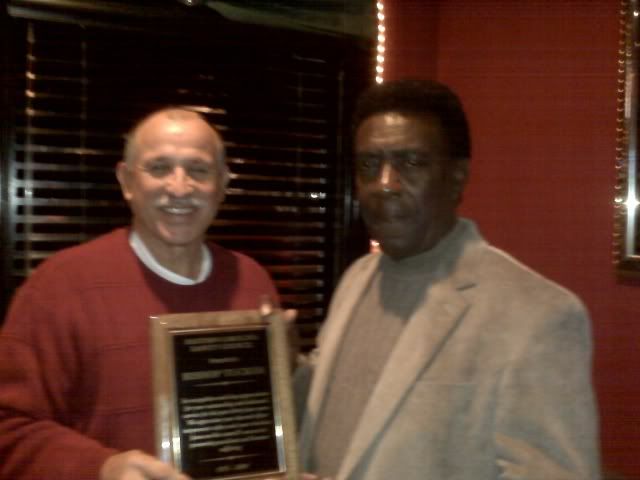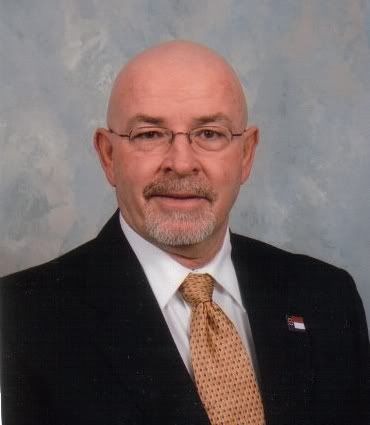Greetings Friends in the Name of Safety:
We're
adding a new feature in our Safety
Bulletin this month. We will do our
best to post as many of our upcoming
events for your convenience as
possible. To register for an event,
workshop, etc, go to our Online
Training Calendar unless otherwise
directed. It is our goal to keep you
informed and not send out too many
notices to bog you down with emails.
In order to stay abreast we
encourage you to check our Online
Training Calendar often.
Safety Council News: Your
Safety Council membership dues
are due and notices will be
going out soon. Please continue
to support your Regional Safety
Councils. To get a head start,
please click your Regional
Safety Council link on the right
of this newsletter to re-new
your annual membership dues.
Safety Section UPDATE:
We regretfully announce that
Randy Cranfill has left the
Safety Section to take a
position in the private sector.
We appreciate all of his hard
work and dedication and wish him
well in his new position.
Michael Nance will
now be serving the Western
Carolina, Western Piedmont
and Blue Ridge areas. For
your training needs, please
give him a call at
919-218-7047.
New Online Training Calendar:
In order to better serve
you, we now have an online
Training Calendar. As workshops
and seminars become available,
they will be posted on our
calendar. Please check it out.
ONLINE TRAINING CALENDAR
Statewide program and
registrations will be
posted soon!
80th Statewide Safety
Conference! Mark
your calendar now for
May 11-14, 2010! Eighty Years
of Safety and Counting...
Exhibitors:
Click
HERE to download
application! Hurry before
Earlybird deadline of January
31st.
|
Regional Safety Councils

Please... don't forget to support
your Regional Safety Councils by
joining their membership ranks and
participating in their scheduled
events. For membership
applications, see the Quick Links to
the right.
|
Repeat Resolutions
They're better than
repeat accidents!
Are you going to make a repeat
resolution to work more safely this
year? That's a great idea! And a
good place to start is to cut down
on repeat accidents.
What causes repeat
accidents?
-
High-risk jobs
involving hazardous
chemicals, dangerous
equipment, and confined
spaces
-
High-stress jobs
without adequate built-in
relief, such as enough staff
or sufficient break times
-
Seasonal jobs that
involve periodic high-volume
work, which can create
accident clusters
-
Repetitive jobs that
can cause ergonomic injuries
-
Repeat injuries from
previous injuries that did
not heal properly, possibly
because of returning to work
too early
-
Referred injuries from
overcompensation of other
body parts to make up for
the injured body part, such
as hip problems from
adjusting the gait to
accommodate a knee injury
Who causes repeat accidents?
-
Stoic "tough guys" who
work through any injury and
consider it a sign of
weakness to do otherwise
-
Angry people who let
passion distract them from
working safely because
they're "just so angry they
can't see straight"
-
Easily distracted
people who don't pay enough
attention to what they're
doing
-
Disengaged workers who
don't care enough to be
careful
-
Tired people,
including shift workers,
whose lifestyle doesn't give
them enough energy or
alertness to work safely
-
Workaholics who won't
stop to report for fear of
losing work time
-
Shy workers who won't
draw attention to themselves
by reporting an incident and
risking an investigation of
their work
Do you recognize yourself in any of
these characters? If so, resolve to
stay safe this year. And check news
& notes for what you can do to stop
repeat accidents.
|
 Winter
Workout Wellness Winter
Workout Wellness
Keep fit in
the cold
Winter weather making you want to
stay inside and sip hot cocoa? Go
ahead-after you've exercised! Here
are two reasons to keep fit in the
winter months:
-
Staying active helps beat
the cold weather blues.
-
Moving around keeps you
warm.
There are many fun ways to stay
active in the season of short days.
Indoors ...
-
Walking at the mall or
school halls
-
Indoor roller or ice skating
-
Bowling
-
Parks and rec classes in
aerobics, yoga, tae kwon do,
or other activities
-
YMCA membership for access
to exercise equipment,
indoor pools, and leagues
for basketball, volleyball,
and other activities
... and Out
-
Downhill skiing
-
Cross-country skiing
-
Snowboarding
-
Sledding
-
Ice skating
-
Winter hiking
|
|
Dumpster Diving
 By
Michael Nance By
Michael Nance
Here we are, a few days into 2010 and we
are all already busy placing
appointments and workshops on the yearly
calendar.
I want to thank everyone that
allowed us to come into your place of
business to provide safety training in
2009.
Usually between Christmas Eve and New
Years Day it is a slow time for us and
we take time off to be with friends and
family, just like many of you.
Some companies shut down, some
work with a skeleton staff because it's
just a slow time for most of us.
As the year winds to a close, a
lot us start to go through files,
papers, and all sorts of office stuff to
make room for the new year.
We clean our desks, closets and
try to make it to the company dumpster
while there's still room to throw
everything in.
Be careful of what you are throwing
away.
Identity theft is on the rise and
you might accidently give personal
information away for those willing to
"dumpster dive".
Using a shredding company or
investing in a quality personal shredder
is important these days.
It's been awhile since I've used
a shredder but the one I have
incorporates a few safety features.
First, the machine will not allow
more than 5 sheets at a time so the
feeder slot is pretty small.
I've tried to get my fingers in
there (with the power off of course)
just to see if it was possible.
It isn't,...at least on my
machine.
The second safety feature is the
way it locks onto the top of my trash
can.
If the can were to tip over, the
machine would stay securely fastened.
The third safety feature is the
triggering mechanism itself.
There is a little flap inside the
blades that has to be depressed for the
machine to automatically start.
Not by my finger, but by the
material being shredded.
I realize that something small
could just happen to hit the flap and
start it, but at least there's a small
window of chance.
While many safety features on machines
are aimed at preventing an injury, if
you purposely bypass them, you will get
hurt.
Some of the instructions that
came with my shredder listed several
(what I would think are) common sense
safety do's and don'ts.
Do use a properly grounded
outlet.
Do not use near water.
See?
Common sense.
What I thought would have be
listed wasn't.
You've seen comedy television
where someone's tie gets caught in a
machine haven't you?
Well, it's not listed as a safety
"don't".
The instructions say nothing
about loose clothing or long hair; both
could cause some serious problems if
stuck in a shredder.
Now that I've rambled on about shredding
and the reason why shredders are used,
let's move on to a related topic.
What if during the cleaning of
your office, you realize that you've
thrown away 2010 notes thinking they
were old, outdated 2009 notes?
Sure, I can see everyone nodding
their head up and down.
Yes, we've all had to go
searching in the trash for something
that was mistakenly tossed.
If I could sum this part of the
article up, I would say to really look
at what you are tossing into the
garbage.
Maybe creating three stacks
before you actually get rid of stuff.
One stack for the "keepers", one
stack for the "positive trash", and
another for the "I need to make sure"
stack.
There's a commercial out now that has
two guys sitting in their driveways
going through their respective trash
cans.
One of them asks what the other
is looking for and the reply is "a
Barbie hair brush".
Something small no doubt, and the
worse part is that it's from a brand new
gift a little girl received and is
crying up a storm because it's "gone".
The things a dad does for their
little girls.
Again, I ask you if you are guilty of
having to do the search?
How about on a larger scale? I
recently had a similar experience only
this was not a normal trash can and it
wasn't for a $1 play part.
My son attended the last scout
meeting of the year at the church and it
was a pizza type party.
Two hours of sheer bliss (for
them).
I was busy at home napping when
my wife woke me up from beauty sleep and
announced that she had tried to fish a
garbage bag out of the church dumpster.
When
I asked why,....it went like this:
"You're son is very upset and
scared to tell you that he took his
dental retainer out and placed it on a
napkin to eat and when they cleaned up,
it was thrown away."
He didn't remember until two
hours later that it happened.
Since my wife couldn't retrieve
the garbage, I was asked to go try.
Seeing as how I was looking at a
few hundred dollars in the trash, I
popped up and drove over to the church.
I climbed in and started my
journey into never never land.
So I thought.
About 5 minutes into the various
display inside the dumpster, my wife
pulls up and yells: "We found it, it was
in a paper cup at the house."
I didn't know whether to be upset
or relieved.
Just before climbing out, my wife
decides to frighten me by yelling to
"stop" !!!
She wanted to get a cell phone
photo first.
She said I looked like a possum
peering over the railing.
Funny, real funny.
Being more educated in safety than I was
long ago, I did have on steel toed boots
and gloves to protect myself.
I did take a shower upon arriving
home.
I can say that my "tie or long
hair" did not get caught in the system.
I had on long pants and a jacket
with sleeves.
Like I mentioned previously, be
careful of what you throw away.
It could be worth money, time and
identity.
Dumpster diving can be dangerous.
Lots of goop and sharp objects.
Not to mention, you'll need to
have a good story for the police if they
arrive.
I had mine planned.
Editor's note: Michael Nance is the
NCIC Blue Ridge, Southern & Western
Piedmont areas Safety
Representative. If you are
interested in having one of our
programs in your area, please give
Michael a call at 919-218-9047 or
email him at
Michael.Nance@ic.nc.gov
|
The Eyes Have It
Protect
what you have
January is National Eye Care
Month, which is a
great time to be reminded how
precious our eyesight is and how
we need to protect it. Consider
these eyecare safety basics.
-
Identify each eye hazard you
face on the job and know
specifically how a
particular type of safety
eyewear protects you from
each hazard.
-
Realize why OSHA requires
eye protection. OSHA knows
how dangerous many jobs are
and imposes strict fines to
urge all workers to take
steps that will save their
eyesight from workplace
injuries.
-
Know the consequences of
failing to use required eye
protection. Have you heard
horror stories-or miracle
stories-about how workers'
eyes have been injured
because they weren't wearing
eye protection or their
eyesight was saved because
they were?
-
Recognize that eye
protection gives you more
control over your own
safety. The simple practice
of donning appropriate PPE
in the face of particular
hazards gives you that extra
measure of control.
-
Be a vision leader. Always
use required eye protection
in the work area. Make sure
visitors use it, too-even if
they're just passing through
an "Eye Protection Required"
work area. The example you
set for co-workers is always
a powerful message.
 Always
protect your eyes with a clear
vision for eye safety on the
job. Always
protect your eyes with a clear
vision for eye safety on the
job.
Now you know.
Dennis

|
 Fun
& Useless Tidbits... Fun
& Useless Tidbits...
-
General Lew Wallace's best
seller Ben Hur was the first
work of fiction to be blessed by
a pope.
-
Sales of antacids increase by as
much as 20% the day after the
Superbowl.
-
Fossilized bird
droppings are one of the chief
exports of Nauru, an island
nation in the Western Pacific.
-
The country of
Andorra has a zero percent
unemployment rate.
-
It takes about
63,000 trees to make the
newsprint for the average Sunday
edition of The New York Times.
-
In 2001, the five
most valuable brand names in
order were Coca-Cola, Microsoft,
IBM, GE, and Nokia.
-
It cost the soft
drink industry $100 million a
year for thefts committed
involving vending machines.
-
Astronauts get
taller when they are in space.
-
There is an area
located off the south-eastern
Atlantic coast of the United
States called the "Bermuda
Triangle." It is known for a
high rate of unexplained losses
of ships, small boats, and
aircraft, which has led some
people to believe that this
triangle has supernatural
powers.
|
|
 Smart
Science Smart
Science
Match the
definition to the characteristic
You don't have to be a scientist to work
with hazardous chemicals. But you do
need to know some basic scientific terms
so that you'll be able to identify
hazards and take proper precautions.
Below are some chemical characteristics
that you might find in a material safety
data sheet (MSDS) when you're looking
for safety information about a hazardous
substance. See if you can match the
definition to the chemical
characteristic by writing the letter for
the definition in the space before the
appropriate characteristic.
1. ___ Boiling point
A. Gas, liquid, or solid
2. ___ Specific gravity
B. Temperature at which
liquid turns to gas
3. ___ Physical state
C. How much of chemical will
dissolve in water
4. ___ Solubility
D. Temperature at which solid
turns to liquid
5. ___ Freezing point
E. Tells you whether chemical
will float or sink in water
6. ___ Vapor density
F. How fast chemical puts
vapors into the air
7. ___ Melting point
G. Temperature at which a
liquid turns to a solid
8. ___ Evaporation rate
H. Tells you whether a
chemical will rise or sink in air
Answers at end of Safety Bulletin.
|
|
Central Piedmont
Safety Council Elects New Officers
The Central Piedmont Safety Council
(CPSC) elected new officers at its
December 3rd annual meeting
in Greensboro.
The Nominating Committee
presented a slate of officers
at the November meeting that was
approved and formally voted upon at the
annual meeting.
The following board members will
take office in January:
Barbara Cassidy, Chair.
Cassidy is the Safety/Loss
Control Analyst with Forsyth County Risk
Management where she is responsible for
coordinating the safety education and
training for the county's 2300 employees
as well as conducting safety audits of
county facilities and revising/updating
risk management policies.
She has served on the CPSC for
four years and served as Vice Chair for
the last two years.
Cassidy has been active in
safety for the last seven years and is
also a member of the board of directors
of the North Carolina Association of
Local Government Safety Officials
(NCALGESO).
Cassidy recently was awarded the
H.S. Shine Baucom Award at the 2009
Statewide Safety Conference and the 2009
Directors Award from the NC Industrial
Commission, NC Safety Conference and
Central Piedmont Safety Council.
Tim Long, Vice Chair.
Long has fifteen years of
experience in truck fleet safety and has
been with Epes Transport Systems for the
last nine years.
He is a member of the NC Trucking
Association Safety Management Council
and served for two years on the Steering
Committee and two years as Chair of the
Road Safety Patrol.
Long is also a member of the
North American Transportation Management
Institute.
He has been a member of the CPSC
for eight years and has served on the
board for two years.
Joyce Dillow, Secretary.
Dillow
has over twenty years of Safety/Training
& Security experience and is currently
the Director of Human
Resources/Safety/Security/Training at
Piedmont Chemical Industries where she
is responsible for five plant locations
in three states (NC, SC & TN).
Dillow
is the past president of the High Point
Area Personnel Association and a current
member of the Chair City Toastmasters.
She is a small business committee
member of the High Point Chamber of
Commerce and the Society of Human
Resources (SHRM).
Dillow is also a certified CPR
and First Aid trainer.
After the election, the CPSC Board of
Directors expressed their appreciation
and gratitude to Ray Liguori for his
leadership and service as Chair of the
board for the last two years.
Chair Liguori presented a
Certificate of Appreciation to Tom
Thompson who is retiring from the board
in January.
Thompson commented that after
serving more than 15 years on the board
he feels like he is leaving the CPSC in
good hands.
|
|
Central
Piedmont Safety Council Board Retreat
Press Release...
The Central Piedmont Safety Council
(CPSC) held its day long annual Board
Retreat on November 5th in
Winston-Salem, NC.
This was the 6th year
in a row that the board met to plan the
CPSC's activities and workshops for the
coming year.
The Board spent the majority of their
time working on the program schedule for
2010.
Focusing on new and interesting
workshop topics for 2010, the CPSC will
host 7 workshops around the region.
Timely topics like Workplace
Violence, Environmental Safety/Health
and How to Sell Safety will be presented
along with the often asked for topics
like Electrical Safety, LO/TO and
Ergonomics.
The CPSC will once again host
its annual picnic in June which is free
to all members.
They will provide the hamburgers
and hotdogs with all the fixings along
with an informative presentation and
demonstration on Fall Protection.
The CPSC offers all of its workshops at
not charge to members.
They have an interesting and
informative schedule for 2010 and
encourage their members to attend these
free training opportunities.
Watch
this space for workshop announcements
with easy electronic registration.
|

Bishop Tucker
Retires
from Eastern Carolina Safety Council
After 31years of dedicated service to
the Eastern Carolina Safety Council,
Bishop Tucker has hung up his hat. Shown
presenting Bishop a plaque for his many
years of service is Fletcher Bizzell,
Council Vice-Chairman. Bishop spoke
briefly about the joy and satisfaction
of serving on the Board of Eastern
Carolina Safety Council. "The fellowship
and networking has been a true blessing.
this Board has always been of one accord
with safety of employees first."
We would like to
take this opportunity to
say"Thank You" for your
dedication over the years to the
citizens of North Carolina. Good
Luck in your retirement!
|
Join the
Winner's Circle
All achievement
begins with setting goals
Why set goals? Three important
reasons:
-
Goals help focus your
effort in a definite
direction, which
increases your chance of
succeeding.
-
Goals allow you to
measure progress and
monitor improvement,
which increases your
motivation to achieve.
-
Achieving goals
increases your pride and
self-confidence, which
encourages you to
achieve even more.
People who set goals are less
stressed, more productive, more
satisfied with their jobs and their
lives, and more successful. Ask
anyone who's made it to the top.
They'll tell you that they got where
they are by setting and achieving
goals.
Whether you're setting professional
or personal goals, the rules are the
same:
-
Be specific. Write
down detailed goals. Be
precise about what you aim
for.
-
Be realistic. Make
sure the goals you choose
are relevant and attainable.
-
Challenge yourself.
Set goals at the right level
to be challenging AND
achievable.
-
Think them through.
List all the steps you must
take to reach your
objective.
-
Emphasize short-term
goals. Although
long-term goals are
important, they take much
time and effort to reach.
It's easy to get
discouraged. Short-term
goals can be achieved more
quickly and easily, and keep
you motivated to work toward
long-term goals.
-
Visualize achievement.
Close your eyes and see
yourself achieving the goal.
How does it feel? Keep this
image in mind as you work
toward the goal. Athletes
often use this technique.
-
Be patient. Sometimes
it takes longer than you
expect to achieve goals.
Obstacles you didn't, or
couldn't, anticipate come
up. Don't give up. Stick
with it, and you'll succeed.
-
Rethink your failures.
If you don't achieve a goal
despite your best efforts,
rethink it. Maybe it wasn't
the right goal for you at
this time. Maybe you need
additional skills or
knowledge to achieve it.
When you've analyzed the
problem, set a new, more
attainable goal.
|
Answers:
(1) B
(2) E-Chemicals with a specific
gravity below 1 will float and above
1 will sink.
(3) A
(4) C
(5) G
(6) H-Chemicals with a vapor density
below 1 will rise and above 1 will
sink.
(7) D
(8) F
|
Why Have a Meeting?
Five
good reasons for getting
together
Here's a question for
you: "If they call the
notes taken during a
meeting 'minutes,' how
come the meetings I go
to seem to go on for
hours?"
While it's true that
meetings sometimes turn
out to be time-consuming
distractions from
important work, they can
also be the most
productive and efficient
way to achieve some very
important objectives.
The key to a successful
meeting is to have a
good reason for holding
it.
-
One of the best
and most common
reasons for
meeting is to
exchange
information and
keep people up
to date. When
information
doesn't get to
the right people
at the right
time, there can
be damaging
consequences.
-
Another good
reason to meet
is to discuss
issues of common
concern or to
generate new
ideas.
-
Meetings can
also be a good
way to make
decisions. By
bringing
decision makers
together, you
can get swift,
effective
action.
-
Meetings can
bring people
with different
expertise
together to
solve problems.
-
Meetings are
good for
formulating
strategies to
deal with future
challenges.
The MAIN Reason is our
Family!
|

NC Industrial
Commission Safety Section Upcoming
Events
* February 03, 2010
8:00 AM - 4:00 PM
Water/Wastewater
Six-Hour Workshop
Nucor Steel Mill-Hertford Plant
1505 River Road
Cofield, NC
* February 16, 2010
8:30 AM - 3:30 PM
* April 20, 2010
* June 22, 2010
First Aid/CPR/AED & Blood borne
Pathogen Class
Dennis Parnell 919-218-3000
Rocky River Regional Wastewater
Treatment Plant
Training Facility
6400 Breezy Lane
Concord, NC
* February 17, 2010
8:00 AM - 12:00 PM
Competent Person Trenching Class
Raeford Civic Center
200 S. College Dr
Raeford, NC
* February 22 - 26,
2010 8:00 AM - 4:00 PM
BASIC APCAP Course
Dennis Parnell 919-218-3000
Dare County Administrative Building
954 Marshall C Collins Drive Room
168
Manteo, NC
* February 22 - 23,
2010 8:00 AM - 4:00 PM
ADVANCED APCAP Course
Dennis Parnell 919-218-3000
Dare County Administrative Building
954 Marshall C Collins Drive Room
238
Manteo, NC
* March 16, 2010 8:30
AM - 3:30 PM
* May 25, 2010
Six-Hour dual Water/Wastewater
Workshop
Dennis Parnell 919-218-3000
Rocky River Regional Wastewater
Treatment Plant
Training Facility
6400 Breezy Lane
Concord, NC
*
May 11 - 14, 2010
Statewide Safety
Conference
Dennis Parnell 919-218-3000
Joseph Koury Convention
Center
Greensboro, NC
* August 2 - 6, 2010 8:00
AM - 4:00 PM
BASIC & ADVANCED APCAP Courses -
(Location TBA Western NC)
* August 30 - September
3, 2010 8:00 AM - 4:00 PM
BASIC APCAP Course
Dennis Parnell 919-218-3000
Atlantic Beach Sheraton
2717 Fort Macon Rd
Atlantic Beach, NC
* August 30 - 31, 2010
8:00 AM - 4:00 PM
ADVANCED APCAP Course
Dennis Parnell 919-218-3000
Atlantic Beach Sheraton
2717 Fort Macon Rd
Atlantic Beach, NC
* October 18 - 22, 2010
8:00 AM - 4:00 PM
BASIC APCAP Course
Dennis Parnell 919-218-3000
Village Inn Golf & Conference Center
6205 Ramada Drive
Clemmons, NC
* October 18 - 19, 2010
8:00 AM - 4:00 PM
ADVANCED APCAP Course
Dennis Parnell 919-218-3000
Village Inn Golf & Conference Center
6205 Ramada Drive
Clemmons, NC
|
|
About NC Industrial Commission
Safety Section
The NC Industrial
Commission Safety Education Section
stands ready to assist you with your
Safety training needs. We offer a
variety of courses, designed to suit
your needs. Please give one of our
Industrial Safety Representatives a
call.
 DENNIS
PARNELL DENNIS
PARNELL
Director Safety Education
919-218-3000-Cell
919-807-2602
Dennis.Parnell@ic.nc.gov
 KIM
NADEAU
Program Assistant
919-807-2603
Kim.Nadeau@ic.nc.gov
 ALVIN
SCOTT ALVIN
SCOTT
Eastern & Northeastern Areas, Eastern
Defensive Driving Instructor
919-218-2792
Alvin.Scott@ic.nc.gov
WE ARE
STILL WORKING FOR YOU!
|
For
more information...
Contact Dennis Parnell Dennis.Parnell@ic.nc.gov |
|
|
|
Quick Links
General
Industry
|
|
Quick Links
Fleet Safety
Seeing When Driving at Night
|
|
Quick Links
CENTRAL
PIEDMONT SAFETY COUNCIL
Membership Brochure
|
|
Quick Links
EASTERN
CAROLINA SAFETY COUNCIL
Membership Brochure
|
|
Quick Links
SOUTHEASTERN SAFETY COUNCIL
Membership Brochure
|
|
Quick Links
WESTERN PIEDMONT SAFETY COUNCIL
Membership Brochure
|
|
Quick Links
MID-STATE
SAFETY COUNCIL
Membership Brochure
|
|
Quick Links
BLUE RIDGE SAFETY COUNCIL
Membership Brochure
More About Us |
|
Quick Links
NORTHEASTERN SAFETY COUNCIL
Membership Brochure
|
|
Quick Links
WESTERN CAROLINA SAFETY COUNCIL
Membership Brochure
|
|
Quick Links
NC RURAL WATER ASSOCIATION
|
|
Quick Links
SIGN-UP FOR OUR NCIC
SAFETY BULLETIN
Email/Newsletter
|
|
news & notes

REMOVING REPEAT ACCIDENTS
Here's how to help break the
cycle:
DO:
-
Make no more repeat
accidents a Number One safety
objective.
-
Talk about your
priority every day.
-
Be a safety advocate.
Remind co-workers not to take
shortcuts, use substitute tools, or
otherwise increase their risks for
accidents.
-
Be a cheerleader for
safety responsibility in your work
area.
-
Always be on the
lookout for potential safety
problems.
DON'T:
-
Don't criticize
co-workers without offering
suggestions and support.
-
Don't lecture.
Lectures annoy and turn co-workers
into passive recept-ors rather than
actors in improving their own safety
performance.
-
Don't blame. Even if
a co-worker makes a mistake, the
goal is to fix the error, not to
point fingers.
-
Don't assume the
worst of people. This assumption can
backfire by becoming a
self-fulfilling prophecy for the
singled-out person.
-
Don't give pep talks
with simplistic answers. Actions
speak louder than words so back up
encouraging words by making real
changes and offers of assistance.
You play an important role in
preventing repeat accidents-both your own
and your co-workers'.
And help is just a phone call away.
Call your
NCIC
AREA SAFETY CONSULTANT!
|
|
THIS YEAR,
I RESOLVE
TO:
New Year's
resolutions are goals, too, so create
resolutions you can achieve:
Don't make too many.
The more
you make, the less likely you are to achieve any
of them.
Write them down.
Post it where you'll see it every day.
Use
positive language.
Instead of "I won't," say "I will"
Keep
it simple.
Complicated resolutions are hard to
achieve-or even to know if you've really
achieved them.
Make
it real.
If your goals aren't realistic, you set
yourself up for a frustrating and
disappointing year. Resolving to get a
promotion may not be realistic, but
commiting to take specific steps toward the
promotion is possible.
Check them off as you go.
When you achieve a resolution, check it off.
This
keeps you motivated to achieve the rest.
Add
new resolutions throughout the year.
As you check off each resolution, make
another. There's no law against making new
resolutions any time of year.
A [person] without a goal is like a ship
without a rudder. -Thomas Carlyle
You measure the size of the accomplish- ment
by the obstacles you have to over- come to
reach your goals.
-Booker
T. Washington |
|
Quick Links

AVOID FLU WHEN
TRAVELING
Influenza virus is spread by droplets from
coughs and sneezes. Studies have shown that flu
viruses can survive on hard surfaces and can
infect a person from two to eight hours after
being left on items like cafeteria tables, door
handles and airplane trays. Follow these tips
from Oregon Public Health for healthy travel:
-
Travel only when you're well
so you don't spread flu to
others.
-
Get vaccinated with a
seasonal flu shot and, if you are in a
target group, an H1N1 vaccine.
-
Cover your coughs and
sneezes with your elbow or a clean
tissue.
-
Avoid getting germs
into your body by not touching your
face.
-
Wash your hands
frequently.
-
Carry alcohol-based hand
sanitizer; if you're flying,
remember that all liquids, must be in a
3 oz. or smaller container, placed in a
quart-sized clear plastic zip-top bag,
and placed separately in a security bin
for X-ray.
-
Carry sanitizing wipes
to clean armrests and trays on public
transportation.
-
Prepare for a possible health
screening if you're traveling
outside the U.S. China and Japan have
screened passengers and others may do
the same if the pandemic becomes more
concen-trated. To avoid being detained
abroad, don't travel while sick.
-
Stay healthy by
being active, eating a healthy diet, and
not smoking.
|
|